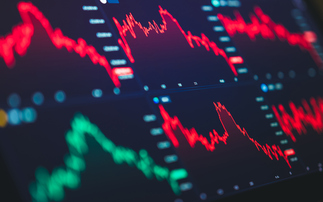The proliferation of different ESG metrics and ratings has accelerated in recent years, allowing investors to analyse opportunities in ways that were previously impossible. James Baxter-Derrington talks to ESG investment specialists about current issues in the ESG ratings market and how the market might look in years to come.
Moret also believes a "taxonomy-aligned" set of ESG scores is due in the future, along with "stiffer competition from ESG data disruptors" who will utilise AI and fintech to "shift away from the disclosure bias" inherent in many "established ESG score providers".
"An approach that scores a company not on what it is saying, but what it is doing via inferred data from newsflow and sentiment analysis as another perspective to identify pressure points and latent systemic risks," she explained.
A "common ESG analysis framework" is part of the future of ESG for Mirabaud's Himmi, who also acknowledged "the ways research providers compute ESG scores at the granular level [are] so different the final outputs are not even comparable".
She suggested the industry will see "specialist research providers" emerging to offer "distinctive products" focused on ESG sub-criteria, along with more importance being given to specific issues rather than today's "general overview of a company's practices".
The future of ESG ratings
Morningstar's Bioy believes that blockchain and AI will soon "facilitate the collection of data" leading to "new ESG scoring approaches" as the industry shifts away from "estimated" data.
She also anticipated the "harmonisation and standardisation of corporate ESG disclosure" will help to make ESG rating "more robust", and the increased interest of investors in both the positive and negative impact of their investments would require a "different framework from the ones to measure ESG risk".
A move away from ESG risk to "ESG performance" is also argued by Simone Gallo, managing director at MainStreet Partners, who believes that asset managers will have to regularly publish ESG data to "create a track record that hopefully will improve over time", for which investors will need a "tool to evaluate this performance".
"This represents the normal evolution of the financial system," Gallo said, "at one time, only yield was measured, then the return adjusted for risk. Today, we add the key dimension of ESG return and risk of an investment."
Eventually, ESG will shift from "something everybody is talking about" to "something that people just expect", according to Square Mile Investment Consulting and Research commercial director Steve Kenny.
"I think, in three or five years' time, ESG will be hygiene," he explained.
"It will be like free cashflow modelling, looking at EBITDA - nobody asks a fund manager 'do you do free cashflow modelling?' because there is an expectation."
















